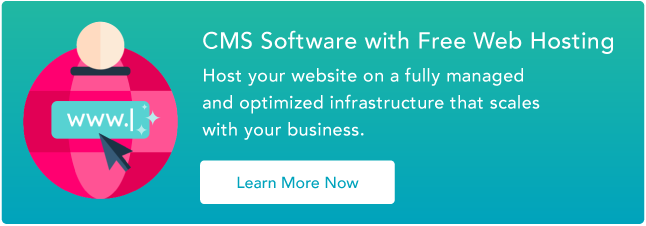All hosting providers differ in their advantages and drawbacks, so I’ll break down WordPress.com and GoDaddy hosting by four important factors: pricing/plans, page-building tools, security, and performance/uptime.
Pricing and Plans
Let’s begin by covering what's likely the first thing on your mind: price. When finding a hosting solution, weigh the number and quality of features from both services for the price. Also, be mindful of discounted hosting rates for your first year. These can be misleading, as providers often increase the monthly cost after the end of your first term.
WordPress.com Plans and Pricing
WordPress.com’s hosting plans are aimed at personal website owners and smaller businesses looking for an all-in-one hands-off WordPress solution. WordPress.com offers a free hosting plan and four paid hosting options.

The Free plan might seem tempting, but its capabilities and storage are limited compared to paid plans. You can still pursue personal online projects, but you cannot connect to a personal domain, and you’ll have to settle for WordPress ads that occasionally appear on your pages.
For a more powerful personal site or a small business website, get a paid plan. WordPress recommends the best tier for your needs, which range from $4 per month to $45 per month. All paid plans are billed annually and include a free domain for a year. They also all come with a variety of free site templates (which WordPress calls “themes”) to pick from.
As prices increase, so do available features and storage space. If you want more extensive customization and/or access to monetization features, choose at least the Premium plan, as this tier and higher include unlimited premium themes and advertisement tools.
Also worthy of note is WordPress.com’s limited customer support. WordPress.com doesn’t do support calls, but paid plans do include 24/7 live chat and email support. These options won’t help solve more complex technical challenges or issues with third-party software — for that, you’ll need Personalized Expert Support Sessions, only available on the Business and eCommerce plans.
If you run into problems, WordPress recommends first referencing its online documentation, knowledge base, and support forums, as you can resolve the majority of your WordPress-related problems this way.
GoDaddy Plans and Pricing
GoDaddy targets its web hosting plans at beginner website administrators, highlighting its ease-of-use. With all plans, you can choose your domain, get hosting, and quickly build your website all in one place. This makes GoDaddy great for first-timers who want to get their website running as soon as possible.
GoDaddy offers four paid plans, starting Economy (starting at $5.99 per month) up through Maximum (starting at $19.99 per month). Note that these prices are discounted and applied through only your first year with GoDaddy.

You can get a lot done even on GoDaddy’s cheaper hosting plans. All plans grand admin controls through cPanel so you can easily configure your host and integrate other web apps. It’s most basic plan offers far more storage (100 GB) than WordPress.org, and all higher tiers include unlimited storage. Unmetered bandwidth across all plans will keep performance fast during periods of increased traffic.
If you tend to rely on customer support for assistance, GoDaddy has a leg up on WordPress. All GoDaddy plans include award-winning 24/7 phone, email, and live chat support. Also, all annual plans include a free domain. This is a nice perk, and makes sense — GoDaddy is known for its domain services.
If you prefer to use WordPress as your CMS, GoDaddy includes free one-click WordPress installation on all plans. It also offers managed WordPress hosting, meaning your server will be configured specifically for WordPress to optimize performance, uptime, and security. You can view its specialized WordPress plans here.
Site Builder
If you’re building a website from the ground up, a website builder will help you quickly organize your page structure, content, and appearance. Both WordPress.com and GoDaddy have their own custom site builders integrated with hosting, so let’s compare the two.
WordPress.com Site Builder
All WordPress.com hosting plans come with a free site builder, so you build your pages and structure your site with no programming required.
Unlike GoDaddy, WordPress themes allow you to customize the layouts of your pages. This enables extensive customization of your site in exchange for a steeper learning curve. Building with WordPress can get quite involved, so expect to put in a healthy amount of tweaking for the site you want.
Note that WordPress.com’s site builder is different from the WordPress CMS, which is even more flexible. Though the WordPress site builder is more limited in options, it still provides the tools you need to construct an engaging site, free of charge.
GoDaddy Site Builder
GoDaddy’s website builder (formerly known as GoCentral) emphases simplicity and user-friendliness. Even those lacking design experience can quickly get a website off the ground by utilizing GoDaddy’s templates and drag-and-drop interface. SEO and ecommerce tools are offered on higher plans.
While the ease-of-use of this builder beats WordPress, it comes at the cost of reduced flexibility. GoDaddy offers far fewer template options than WordPress.com with limited options for changing our page layouts and designs. If you’re especially picky about your site’s look, you’d best defer to another builder option.
But, for a basic, intuitive website builder that will get your online business off the ground quickly, consider GoDaddy’s tool. Also, try out some more flexible alternatives that you can integrate with GoDaddy hosting.
Security
There’s perhaps no greater threat to online businesses today than cyberattacks. Still even the most popular websites come up short when it comes to website security. On average, 30,000 new websites are hacked every single day.
Your host plays a big role in keeping your site safe. When choosing a provider, consider its reputation in the cybersecurity space, evaluate the measures it promises to protect its servers, and look for add-ons to protect your information.
WordPress.com Security
Frequent updates are key to protect your WordPress website from threats. WordPress.com provides automatic updates and backups, which is one less thing you need to remember. If something goes wrong, just pull from your most recent backup.
All modern web browsers will warn visitors when entering a website that is not protected by SSL, so securing your site in this way is a necessity. All WordPress hosting plans, including free, come with a pre-installed SSL certificate to protect visitors’ connections to your hosting server.
While choosing the right hosting important for securing your website, much of the responsibility falls in the hands of the site administrator. For more steps to secure your WordPress site, see our guide to WordPress security.
GoDaddy Security
GoDaddy hosting boasts its extensive security measures for all hosting plans, which include continuous security monitoring, DDoS protection, and anti-spam and anti-malware features for mailboxes. For an additional $2.99 per month, GoDaddy will automatically backup your site daily.
GoDaddy’s cheaper plans do not offer a free SSL, but you get a free SSL certificate for one year on its Ultimate plan, and the Maximum plan includes a free SSL certificate for the duration of your plan.
For additional security features for your GoDaddy site, consider its additional website security plans.
Load Time and Uptime
Page performance (i.e., how fast your pages load) and uptime (i.e., how often your site is available online) are largely up to your host. When it comes to these factors, small differences matter. Any downtime will drive potential and current customers elsewhere, and visitors expect your pages to load in just seconds. Google also likes fast pages, and incorporates performance into its rankings.
Uptime and page speed will increase as you upgrade plans, but any quality plan will provide at least 99.95% uptime on a regular basis, as well as average page speeds of a couple of seconds at most. Let’s look at how WordPress and GoDaddy compare.
WordPress.com Load Time and Uptime
WordPress.com is transparent about its speeds and the uptime of its servers, both of which are comparable to GoDaddy.
According to WordPress’ status support page, downtime is very unlikely, and users are promptly notified of both unexpected downtime and planned maintenance. WordPress’ widely-distributed server network guarantees reliable hosting without interruptions, even when part of the network temporarily goes down.
Additionally, WordPress updates the current performance and status of WordPress.com servers and associated services here, and there are many resources to cut back on load time — start with our guide on improving WordPress site performance.
GoDaddy Load Time and Uptime
GoDaddy promises at least 99.9% uptime for all websites using its service. This rate is nothing special, since .01% downtime will add up and affect your customer experience in the long run. Still, you can receive credit toward your plan if GoDaddy doesn’t uphold their guarantee.
Overall, however, GoDaddy hosting seems reliable. An analysis by Hosting Facts found that uptime on GoDaddy’s most basic hosting plan remained stable around 99.7% uptime over two years. For the price of cheap hosting, this is a solid result.
The same study also concluded that GoDaddy page speed is competitive with other hosts, with load times coming in around 500 milliseconds on average. This is well below the attention threshold of the average website visitor, thanks in large part to the unmetered bandwidth across all plans.
Summing Up WordPress vs. GoDaddy
GoDaddy and WordPress both offer reliable, scalable hosting solutions for new online businesses. With so many factors to consider, it’s easy to lose track of the pros and cons of each. To help your decision, we’ve included a table below summarizing the main benefits of both providers:
| WordPress.com | GoDaddy | |
|
Pricing and Plans |
offers a free plan and paid plans from $4 to $45 per month, free domain for a year on paid plans, 24/7 live chat and email support on paid plans | plans range $5.99 to $19.99 per month, at least 100 GB storage, free domain on all annual plans, unlimited bandwidth, 24/7 phone, email, and live chat support |
| Site Builder | wide range of templates and flexible design options | simple and user-friendly, fewer templates and design flexibility |
| Security | automatic updates and backups, pre-installed SSL certificate | automatic daily backups for $2.99 per month, free SSL certificate for one year on higher plans |
|
Load Time and Uptime |
tends around <1 second average page load time, near-perfect uptime | ~500 ms average page load time, 99.97% uptime (with 99.9% uptime guarantee) |
WordPress Website




![How to become a WordPress developer [+ tips from WCEU speaker Paul Bearne]](https://53.fs1.hubspotusercontent-na1.net/hubfs/53/59_How%20to%20Become%20a%20WordPress%20Developer.png)








